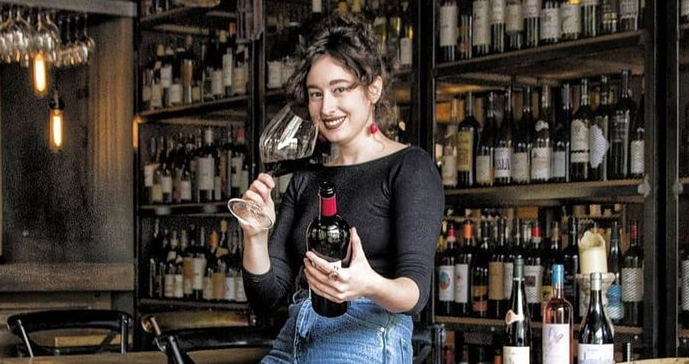In less seven years Georgia Panagopoulou, aka @WineGini, has built up a community of over 120,000 followers on Instagram. She will be explaining how at Wine Future in Coimbra, Portugal. To find out more and how to register for Wine Future click here.
What do you see as being the biggest challenges facing the wine industry?
From the perspective of digital wine marketing and social media, several significant challenges and potential threats exist. Firstly, the industry faces increased competition as new wineries and brands enter the market, making it more challenging for established players to capture consumer attention through digital channels.
Regulatory constraints present another difficulty, as wine marketing, especially on social media, is subject to varying regulations and restrictions across regions. Evolving consumer behaviour, with a shift towards sustainability and authenticity, requires marketing strategies to adapt accordingly. Content overload in the digital space poses the challenge of cutting through the noise and creating engaging content.

Wine Gini’s Instagram community is now over 120,000 followers
Data privacy concerns and the need for effective online reputation management add complexities, while staying current with technology trends and addressing supply chain disruptions are additional industry-specific challenges.
What do you see as the big outstanding opportunities and how do you see the industry capitalising on them?
In the realm of digital wine marketing and social media, several outstanding opportunities await the wine industry. These include embracing e-commerce and DTC sales, allowing wineries to expand their online presence and foster direct consumer relationships. Leveraging the power of storytelling and brand authenticity, especially through social media, can captivate consumers seeking genuine narratives behind wines. Data-driven marketing offers the chance to create personalised campaigns, while social media engagement and influencer partnerships can build devoted communities. Augmented and virtual reality technologies present innovative avenues for immersive wine experiences.
Emphasising sustainability efforts and showcasing eco-friendly practices resonates with environmentally conscious consumers. To seize these opportunities, the industry should invest in digital infrastructure, data analytics, and engaging content, ultimately enhancing consumer engagement and brand loyalty.
What do you think have been the biggest steps the wine industry has taken in the last 10 years?

Georgia Panagopoulou looks to work with wine producers to help them tell their story through digital marketing
Over the past decade, the wine industry has experienced transformative milestones and significant step changes. Digital transformation has revolutionised marketing and sales, enabling wineries to engage with global audiences through e-commerce and social media. Direct-to-consumer (DTC) sales have increased, empowering wineries to control customer relationships.
Wine tourism has flourished, boosting local economies and enhancing visitor experiences. Sustainability practices, including organic and biodynamic farming, have taken centre stage, responding to consumer demand for eco-friendly products. Natural and minimal intervention wines have gained popularity, emphasising authenticity.
Wine technology has improved precision viticulture and resource efficiency, while wine education has become more accessible through online courses and certifications. Emerging wine regions have challenged traditional players, and alternative packaging options have offered convenience and sustainability. Finally, social media’s influence and the rise of influencers have reshaped consumer preferences and trends, underscoring the industry’s adaptability and response to changing consumer values, technology advancements, and global dynamics.
Are you optimistic or pessimistic about the future of the wine industry in the next 10 years – and why?
The industry has demonstrated remarkable adaptability, embracing digital technologies, sustainability practices, and innovation, ensuring it stays relevant in an ever-changing landscape. Growing global demand for wine, especially in emerging markets, presents opportunities for expansion and diversification. Sustainability practices resonate with consumers and regulatory trends, reinforcing eco-friendly approaches.
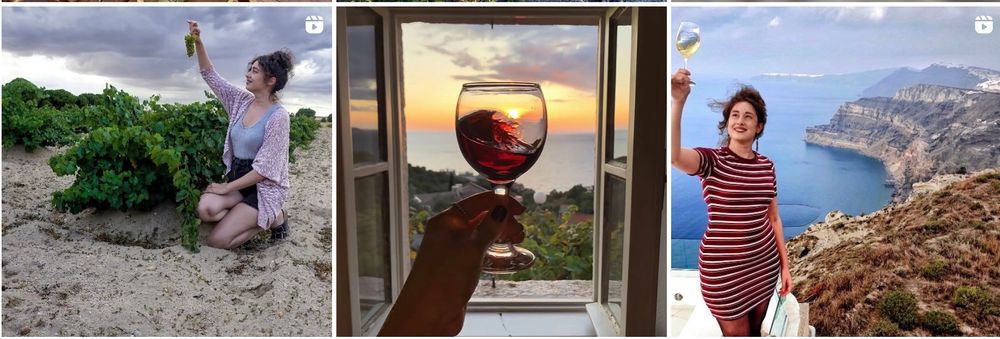
Georgia Panagopoulou believes the correct use of social media has helped to widen knowledge and education amongst wine drinkers
Technology integration, such as data analytics and precision viticulture, enhances wine production and consumer engagement. Flourishing wine tourism fosters additional revenue streams and brand loyalty through memorable experiences.
Accessible wine education encourages consumers to explore and appreciate diverse wine offerings. Ongoing innovation, including new grape varieties and packaging, caters to evolving consumer tastes. Despite challenges like market competition and regulations, the wine industry’s adaptability, commitment to quality, and responsiveness to trends position it for a promising future with sustainability, technology, and consumer engagement at its core.
How and why did you first get into the wine industry?
Most people know me as @wine.gini, who’s making wine digital. I am a millennial, born and raised in Athens, Greece with a totally diverse background. I had nothing to do with wine, until seven years ago, when I decided to shift my career from chemical engineering to digital wine marketing.
My love for wine started earlier though in 2011, as an exchange engineering student, during my Erasmus year in Valencia, Spain. We became friends with oenologist students, and one day, I did my first winery tour. A new world opened to me. People making a career in wine? I continued my university studies, then worked in sales, marketing, and project management positions, in corporate companies like Coca-Cola. Until 2016, a year of the huge crisis in Greece. I decided to quit everything and do something out of passion. In the end, I had nothing to lose. That was when I landed my first wine job in Santorini, the Greek island. After a season there, my perspective in life and personal goals took a new turn. So in 2017 holding the WSET Level 2, I started the OIV MSc in Wine Management in Paris, during which, I studied wine visiting 30 wine countries around the world.
During that time, social media in the wine industry was not popular, but I decided to start @wine.gini and share this life-changing experience with anyone who would be interested. The community went huge!
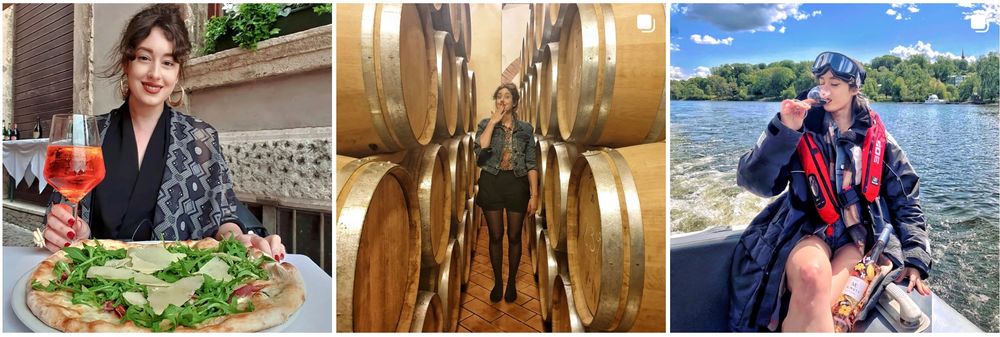
Georgia Panagopoulou believes her career and education outside of wine in chemical engineering has helped her develop the business knowledge and disciplines she needs to run her own digital marketing agency
Coming from a chemical engineering background and with experience in marketing positions, for me, it is natural to solve problems while combining creative communication. So I finished my Master’s in 2018, got the WSET 3, and moved to New Zealand, working for a year in the marketing of a New Word winery to gain more knowledge. I made the most out of this experience and moved back to Europe in 2019. That was the year of the re-branding of Wine Gini. I did my studies in digital marketing, enrolled in WSET Level 4 and was finally ready to launch my digital wine marketing agency.
What do you most enjoy about working in the sector?
I work hard to accomplish the best I can in my field, which is digital wine marketing via my established digital marketing agency Wine Gini. Moving to wine from engineering was the real challenge. I realised there was a gap in digital wine marketing, due to the diversity in the industry, the somewhat conservative approach, and the lack of digital knowledge. During my worldwide wine studies, I met and talked with several producers, and noticed how hard it was for them to communicate their message and adapt to the new digital reality. I saw an opportunity there. So what I do now is to connect the dots. Using my background in chemical engineering, wine management, digital marketing, and being a WSET L4 diploma student, I help brands bridge the gap between wine and digital in two ways.
I work either behind the scenes as a digital marketing strategist, consultant, educator, or as a brand ambassador, via my social platforms, collaborating with wine brands, wineries, agencies, appellations, producers and institutions for their promotion worldwide.
As Wine Gini, I am honoured to be trusted by great wine brands globally. It’s my mission to help them communicate their projects, with my work being trusted in more than 10 countries. My brand @wine.gini ranks among the world’s top IG wine communities. We address a community of wine professionals from export, import, media, marketing, education, hospitality, e-shops, cavas, wineries, and of course wine lovers.
I always analyse the projects of my clients and find a tailored communication solution. My “know-how” is to set effective digital marketing strategies and give solutions for each wine project I take over either behind the scenes or as an ambassador. So what I absolutely love is that I can offer to the industry, being useful for others in several ways, while at the same time empowering the digital marketing side of the sector.
Can I ask why you want to be involved in Wine Future?
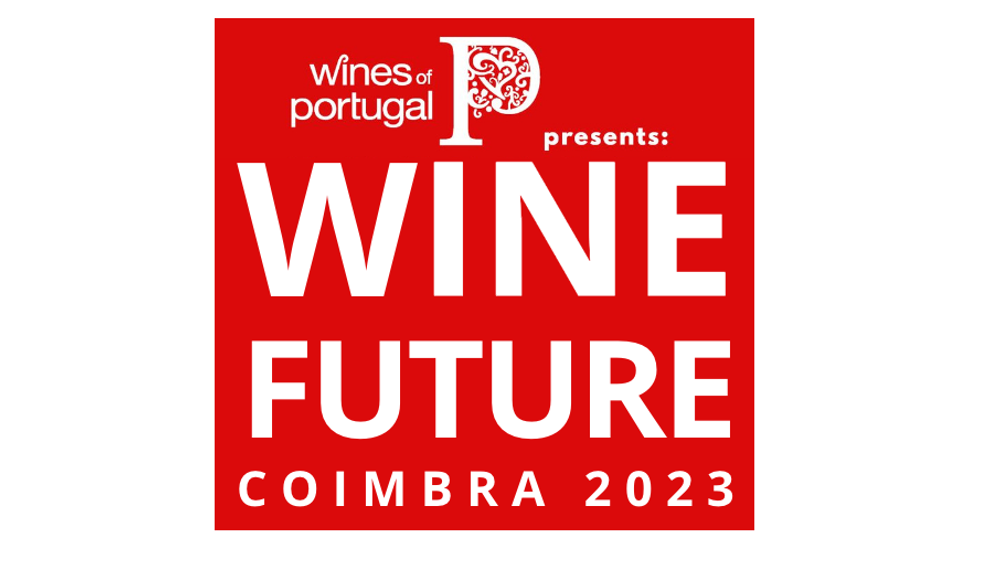
Wine Future takes place in Coimbra in Portugal between November 7-9
I have a deep passion for the wine industry, and I believe that events like Wine Future provide an incredible platform to share knowledge, insights, and innovations with fellow enthusiasts, professionals, and wine lovers. Being a global conference that brings together experts from all corners of the wine world, participating in this event allows me to gain valuable insights into international trends, practices, and challenges in the wine industry.
This conference also offers unique opportunities to connect with industry leaders, winemakers, researchers, and enthusiasts. I believe in the importance of knowledge-sharing, plus networking is a crucial aspect of our industry, and this allows us to build meaningful connections. As a keynote speaker in the event, I can contribute to discussions, share my experiences, and learn from others. Together, we can advance the wine industry and promote its growth.
What do you hope the event can achieve for the wider wine industry?
I hope Wine Future becomes a dynamic platform for knowledge sharing and innovation within the wine industry. I envision it as an event that empowers wine professionals with insights, helping them foster global collaboration and cross-cultural dialogue. I hope for the industry to be more capable to adapt, prioritise consumer engagement, and address challenges effectively. Ultimately, my aspiration is for Wine Future to drive positive change, fostering sustainability, resilience, and authenticity in the wine industry, leading it towards a brighter and more connected future. As it’s a truly international event we will exchange ideas and experiences that transcend geographical boundaries. For me it’s the TEDx for wine!
What is the theme of your talk and why have you chosen that topic?
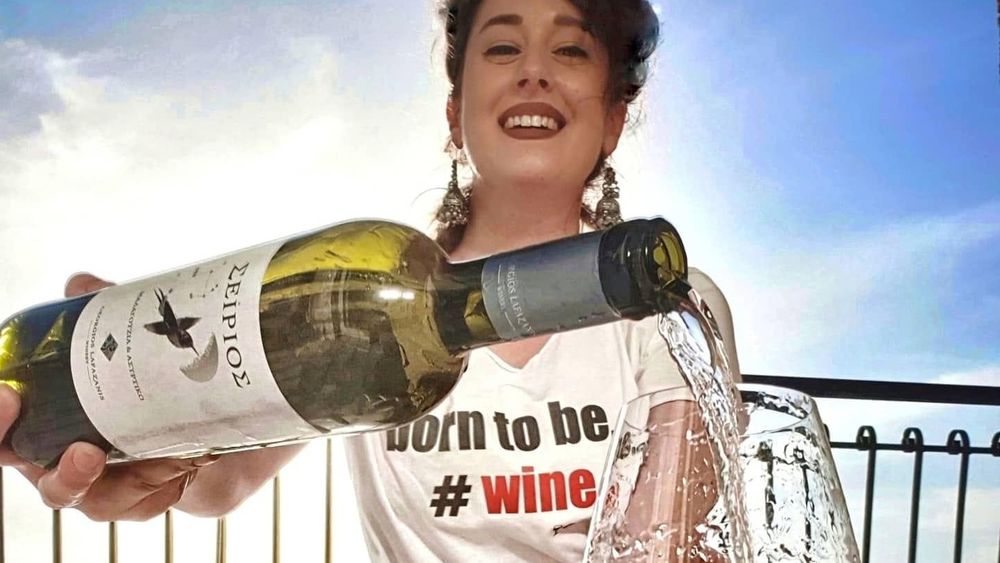
Georgia Panagopoulou will be sharing the story of Wine Gini at Wine Future in November
My expertise is deeply rooted in digital wine marketing and social media. The wine industry, like many others, is undergoing a digital transformation. With consumers increasingly relying on online platforms, social media, and e-commerce for their wine-related decisions, having a strong digital presence and marketing strategy has become essential. My involvement allows me to contribute insights and strategies that can help wineries and brands thrive in this digital landscape.
Through our panel with fellow digital experts, we will provide an ideal platform to share the latest best practices in digital marketing. I am eager to discuss how wineries can leverage social media and influencer marketing to connect with their audience, build brand loyalty, and ultimately boost awareness and sales.
What do you find frustrating and would like to change about the wine industry?
Several aspects need attention and improvement. These include complex and varying regulations that can hinder operations and create confusion. Access to wine education could be more affordable and inclusive, ensuring broader knowledge access. Environmental sustainability remains a challenge, with the need for more comprehensive adoption of eco-friendly practices. Market access can be limited for small wineries and emerging regions, calling for increased opportunities. Efforts to promote diversity and inclusion are vital for the industry’s core values leading the way for other industries.
Addressing issues such as wine fraud, waste reduction, are crucial for enhancing industry integrity and sustainability, and of course more openness and adaptability to the digital space.
Any individuals, or businesses that you most admire for what they do and why?
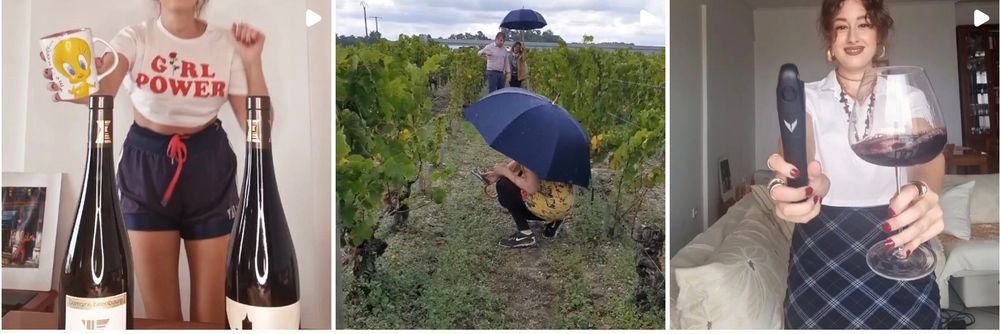
I deeply admire individuals and businesses who show innovation, respect, passion and dedication. Those who inspire by pushing boundaries, finding creative solutions, and creating inclusive, positive environments. But I think it’s essential to recognise the unsung heroes behind the scenes, and their tireless efforts. These individuals deserve our utmost respect and appreciation for making the world a richer and more vibrant place. Vineyard, production and hospitality crews, salespeople, marketers, educators, and countless others, deserve special recognition and admiration. Their tireless dedication is crucial and helps bring the grand vision to life. They should be celebrated for their invaluable contributions.
Anything else to say?
The wine industry is a vibrant and dynamic world, shaped by the dedication, innovation, and passion of countless individuals and businesses. It’s a place where tradition meets innovation, where the land, climate, and human expertise come together to create something truly exceptional. So cheers to the future of the wine industry, and may it continue to evolve, adapt, and inspire.
- Georgia Panagopoulou will be taking part in a panel debate “TikTok, Discord, and Paid Influencers – Reaching New Customers” at Wine Future on November 7 at 10am with: Mariano Braga; Emma Bertrand; Simone Roveda; and Luke Flunders chaired by Cristina Mercuri.
Wine Future 2023 – Coimbra November 7-9
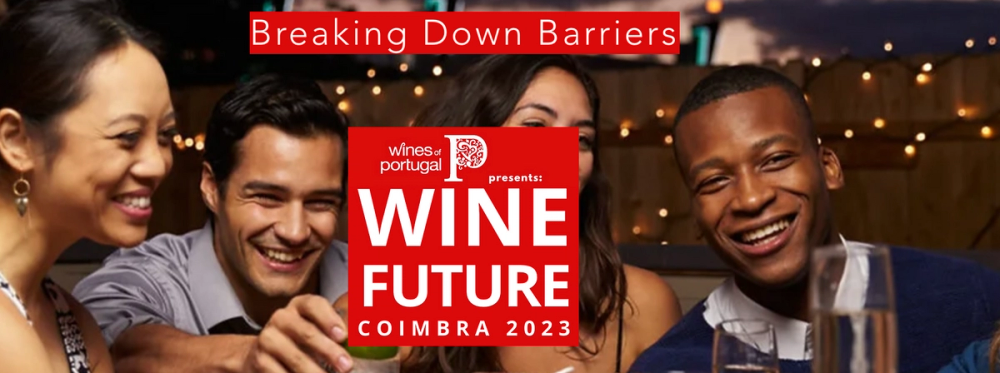
Wine Future 2023 promises to be the leading event in the world to tackle the biggest challenges facing the global wine industry and what steps its stakeholders need to be taking and focusing on to succeed in the future.
It is the fourth Wine Future event to take place following other editions first in Rioja in 2009, Hong Kong in 2011, Wine Future Virtual 2021 and Green Wine Future in 2022. Founder Pancho Campo claims the ambition and overall goal for Wine Future has not changed since 2009 when, in the middle of an economic crisis, it looked to assess its impact and offer solutions and inspiration to everyone involved in the global wine industry.
Close to 25 years later and the world is again facing huge financial difficulties, rampant inflation, a global climate emergency and a declining wine market in most major wine consuming countries. It is against that backdrop that Wine Future hopes to make a difference.

Key themes to be addressed at this November’s conference include:
- Engaging new consumers – particularly Generation Z and Millennials.
- The impact of global economic uncertainty, especially inflation.
- The opportunities of greater diversity, equity and inclusion in the wine industry.
- How we can reach new audiences and better engage with existing wine drinkers through celebrity endorsements, influencers, and working with major international music and sporting events.
- The use of digital marketing and social media to gain a new consumers.
- Using new technologies to improve sales.
- What can we learn from the competition from alternative beverages?
- The human impact of sustainability.
Final Conference Agenda:
- Keynote 1: “Educating the new generations on consuming alcohol with moderation and responsibly” – By Max Trejo and moderated by Siobhan Turner MW.
- Panel 1: “TikTok, Discord, and Paid Influencers – Reaching New Customers” – with Mariano Braga, Emma Bertrand, Georgia Panagopoulou, Simone Roveda, Luke Flunder and moderated by Cristina Mercuri.
- Panel 2: “Growing Sales in Uncertain Times – New Strategies and Trends” – with Ulf Sjodin MW, Rafael del Rey, Don St. Pierre, João Gomes Da Silva, and Moderated by Dr. Liz Thach MW.
- Keynote 2: “How should the wine industry work with celebrities and events?” with Paul Schaafsma, and moderated by Richard Siddle.
- Keynote 3: “From rockstar to businessman” with Bruce Dickinson, and moderated by Joe Roberts & Mike Wangbikler
- Panel 3: “Wine Tourism Evolution – From Cellar Door to Virtual Tours” – with Adrian Bridge, Catherine Leparmentier, Marisah Nieuwoudt, and Moderated by Dr. Michael Cheng
- Tasting 1: “Icon & Premium wines of Portugal” – By Dirceu Vianna Jr. MW and moderated by Frederico Falcao – with the participation of: Dirk Niepoort, Anselmo Mendes, Celso Pereira, Domingos Soares Franco, Joana Silva Lopes, Manuel Lobo Vasconcelos, Paulo Nunes and Diogo Moreira.
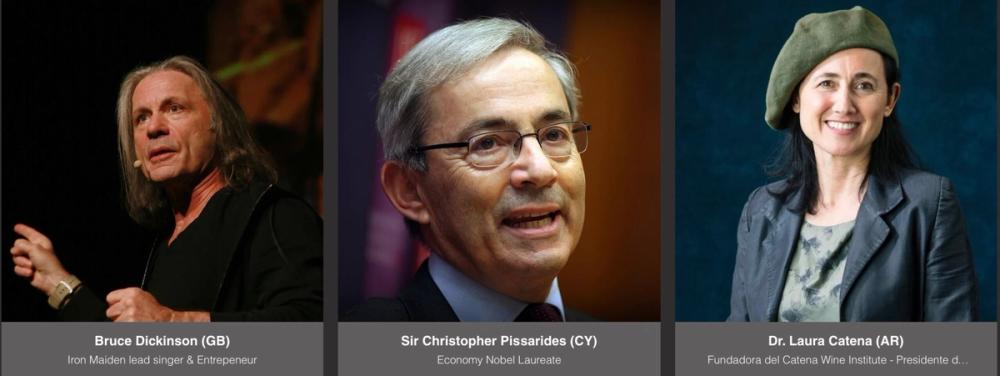
- Panel 4: “Getting to Your Core Story – How to Better Communicate About Your Brand” – with Alder Yarrow, Sonal Holland MW, Megan Greco, Natalie Wang, Ferrán Centelles, and moderated by: Mike Wangbickler.
- Panel 5: “The Competition is Winning – Learning from and Embracing Ideas from alternative drinks” – with Cristina Miranda, Lulie Halstead, Iram Eren, a Coffe Producer TBC, and moderated by Robert Joseph
- Keynote 4: “How and why wine could be the healthiest alcoholic beverage” – By Dr. Laura Catena, and moderated by: Cyril Penn
- Tasting 2: “The Magnificent 12” – Honoring the Ukrainian wine Industry – By Mark Squires and presented by: Maureen Downey.
- Panel 6: “Evolve or Die – Embracing Advanced Technologies to Thrive” – with Maureen Downey, Justin Noland, Ian Ford, Antonio Amorim, and moderated by: David Allen MW.
- Panel 7: “More Inclusive, Less Exclusive – Adopting Diversity, Equity, and Inclusion as an Opportunity” – with Mags Janjo, Queena Wong, Ntsiki Biyela, Bento Amaral, and moderated by: Stephen Wong MW.
- Tasting 3: “Historic & Legendary Madeira and Porto” – By Richard Mayson accompanied by some of the producers.
- Keynote 5: “The current status of the wine industry” – By Rob Mc Millan and moderated by Paul Mabray.
- Keynote 7: “The wine industry, world economy and work in the age of artificial intelligence” By Professor Christopher Pissarides and moderated by: Pancho Campo
